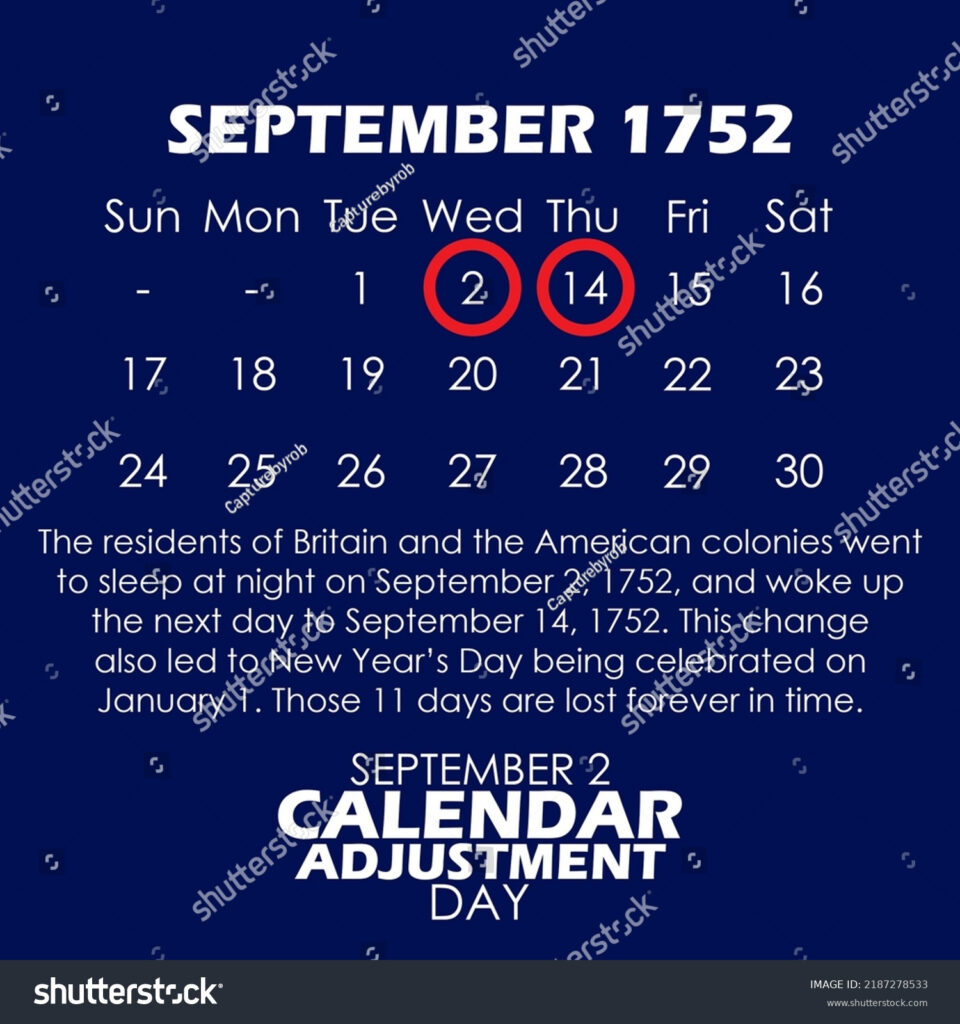In September 1752, a significant calendar change occurred in the British Empire and its American colonies. The Gregorian calendar was introduced to replace the Julian calendar, resulting in the omission of 11 days from the month of September. The change was made to align the calendar with the astronomical year more accurately.
As a result of this adjustment, the calendar for September 1752 had only 19 days, starting from September 14th and ending on September 30th. This transition caused confusion among the people at that time, as they had to adjust to the new calendar system.
Calender Of September 1752
Historical Events in September 1752
Despite the calendar change, September 1752 was a month filled with notable historical events. In the American colonies, tensions between the settlers and Native American tribes continued to escalate. The French and Indian War was also brewing, setting the stage for future conflicts in the region.
Meanwhile, in Europe, the Age of Enlightenment was in full swing, with significant advancements in science, philosophy, and politics. The calendar change of 1752 symbolized a shift towards modernity and progress in the Western world.
Legacy of September 1752
The calendar change of September 1752 had a lasting impact on the way we measure time and organize our lives. The Gregorian calendar, with its more accurate system of leap years and months, is still in use today in most parts of the world. It serves as a reminder of the need for periodic adjustments and improvements in our systems and traditions.
As we look back on the calendar of September 1752, we are reminded of the resilience and adaptability of humanity in the face of change. It serves as a testament to our ability to overcome challenges and embrace new ways of thinking and living.
